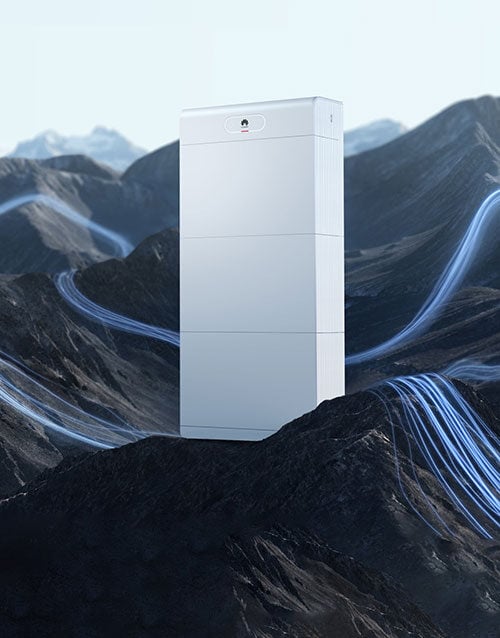Pro Insights 101: How Do Energy Storage Systems Work?
Pro Insights 101: How Do Energy Storage Systems Work?
Curious about how energy storage systems work? It's a hot topic these days, and for good reason. They're a key player in efficient and sustainable energy use. This article breaks down how energy storage systems work, while also highlighting the benefits of incorporating them into your home. We'll help you decide if it's worth considering for your energy needs. So, let's hop into the world of energy storage and discover its wonders!

What Is Energy Storage and How Does It Work?
Energy storage functions as a crucial bridge between energy production and consumption, essentially allowing for a more flexible and reliable energy supply. So, how does energy storage work? It works by accumulating excess energy — often generated from renewable sources — and storing it in various forms, such as chemical, kinetic, or thermal energy. This energy is eventually converted back into electrical power or its original form on demand, helping to stabilize the grid, reduce energy wastage and ensure a continuous energy supply. By smoothing out the fluctuations in energy production and demand, energy storage systems facilitate a more resilient and efficient power network, making them vital for integrating green energy sources into the grid and moving toward a sustainable energy future.
Benefits of Energy Storage
Store Energy for Use During Peak Demand Periods
Energy storage provides an effective solution for power demand surges, often called peak demand. These are periods when energy consumption significantly increases due to extreme weather conditions or peak usage times in business or residential settings. Utilities traditionally meet these high-demand times by activating additional power plants, which can incur substantial costs. However, energy storage systems can absorb electricity during low-demand periods and eventually release it during peak demand. This process optimizes energy distribution while minimizing the cost and necessity of activating more plants.
Connecting Renewable Energy with Storage
Another significant benefit of energy storage lies in its seamless integration with green energy sources. Since power generation from renewable sources, such as wind or solar, depends on natural conditions that aren't controllable, energy production might not always align with demand. Energy storage systems can store the surplus power generated during optimal conditions, such as clear or windy days. The stored power can then be released during non-optimal conditions or peak demand periods. This integration of renewable power and energy storage enhances the reliability and efficiency of renewables and accelerates our transition toward a greener future.
Sell Energy Back to the Grid
Energy storage systems also provide the advantage of allowing consumers to sell excess power back to the grid. Often called "demand response," this process lets homeowners or businesses earn money by selling excess, unused power during peak demand periods. This offers a win-win solution where consumers cut their energy bills while contributing to grid stability by alleviating peak demand.
Are Energy Storage Systems Worth Installing in Homes?
Investing in home energy storage systems can be highly beneficial. They ensure energy reliability, reduce electricity bills by enabling the utilization of stored energy during peak demand periods, and provide the possibility to earn additional profit by selling excess energy back to the grid. Furthermore, they enhance the effectiveness of renewable energy sources, making them a crucial part of a sustainable lifestyle. However, the worthiness of these systems is influenced by factors such as the local energy prices, incentives, and policies, as well as the individual's energy consumption patterns. Despite the initial investment these systems require, their benefits make them increasingly attractive and worthwhile for homeowners considering a move toward more sustainable and cost-effective energy solutions.
Home Energy Storage System Recommendations: LUNA2000-7/14/21-S1
Looking for the best home energy storage system? Here is our ultimate recommendation just for you!
Discover the future of home energy with our FusionSolar LUNA2000-7/14/21-S1, the latest in Smart String Energy Storage Systems. Harness over 40% more usable energy and enjoy longevity with a service life of up to 15 years. It is designed for unmatched resilience and thrives across wide temperature ranges, from the scorching equator to the freezing poles.
This system stands out with its stylish, waterfall-inspired design, complete with a whisper-quiet operation at just 29 dB, ensuring both aesthetic appeal and peace of mind. Safety is paramount, with a 5-layer protection including top-notch LFP cells and IP66 waterproof rating, shielding your home through all conditions.
Charging efficiency hits new heights with 3.5 kW per battery module, with the option to scale it up to 10.5 kW. Paired with the FusionSolar app for seamless energy management and intelligent assistance from EMMA, control and optimization are at your fingertips. Whether for user or installer, our LUNA2000 series promises a blend of innovation, safety, and ease, revolutionizing home energy storage.

Conclusion
Energy storage systems are an innovative modern marvel that can revolutionize how we live sustainably and manage energy. Understanding how energy storage systems work enables us to appreciate their benefits and practicality for modern homes. FusionSolar is at the forefront of this revolution, offering cutting-edge solutions for residential Smart PV & ESS (Energy Storage System). By integrating FusionSolar into our homes, we can harness the power of solar energy more efficiently and contribute to a greener future. It's time to embrace this transformative potential with FusionSolar and pave the way for a more sustainable world.
FAQ
Here are some commonly asked questions on how energy storage systems work.
How Does Stored Energy Work?
Stored energy in energy storage systems (ESS) functions as an energy bank, reserved for use when needed. These systems capture energy from various sources, like solar or wind, and store it in different forms. When demand peaks or the primary energy source is unavailable, the stored energy is converted back into electricity or its original form, facilitating a reliable and consistent energy supply.
Why Do We Need Energy Storage Systems?
Energy storage systems are essential because they allow us to balance supply and demand for power, ensuring reliability and keeping the electricity grid stable. They store excess energy produced during periods of low demand and release that stored energy during peak demand.
What Is the Role of Batteries in Energy Storage?
Batteries play a huge role in energy storage systems as they directly store and release electricity. Energy resources are converted into electrical energy, which is then stored in batteries. These batteries can deliver stored power on demand, providing a reliable, flexible, and efficient source of energy, particularly suited to portable and off-grid solutions and grid stabilization.
About FusionSolar
Products & Solution
Service & Support
Huawei Technologies Co. Ltd use cookies on this site, including third party cookies, in order for the site to work properly and to analyse traffic, offer enhanced functionality, social media features, and personalise content and ads. Learn more
